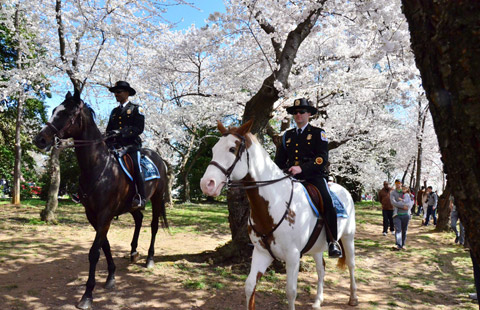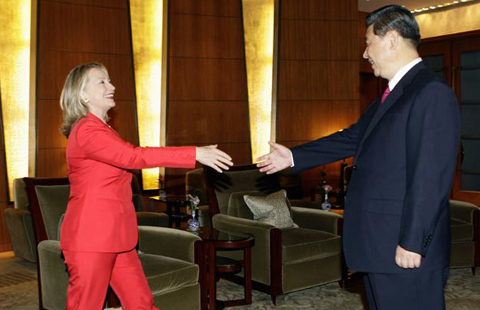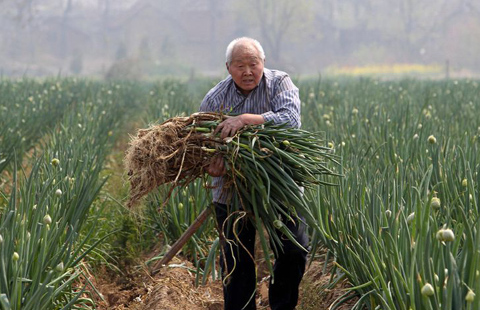China knows how to save endangered species, it's the tiger's turn
Updated: 2015-04-08 06:16
By Chris Davis(China Daily USA)
|
||||||||
China's 1989 Law on the Protection of Wildlife — which is now online in English and available for the world to see — was created, it says, for the purpose of "protecting and saving the species of wildlife which are rare or near extinction; protecting, developing and rationally utilizing wildlife resources, and maintaining ecological balances."
The law lists 42 articles detailing the care and protection of "wildlife resources", which are owned by the state, for their survival, including enforcement and penalties for violators.
In an interesting op-ed piece that went online Sunday, Mang Ping, a professor of ecological ethics at the Central Institute of Socialist Studies inBeijing, points out that the "language" of the law plainly implies that another of its goals is to "fairly use" the wild animals that are considered resources, and that is what has been causing some animal conservationists concern.
"The relationship between man and nature is increasingly fused with a new ethical consideration," Mang writes. "Wild animals for instance are no longer viewed simply as a useful resource for humans to exploit. They are considered to have their own intrinsic value as part of the Earth's biological community."
Of the 580 species of mammals in China, about 30 percent are defined as "wild", Mang says, citing research. And some of those "rare and endangered" ones seen as having "important economic or scientific value are domesticated, bred and commercially utilized". In other words, farmed.
When it comes to tigers, however, the plan of farming them to save them has an alarming backlash.
Tiger bone and tiger bonewinewas for centuries a component of traditional Chinese medicine's pharmacopeia (it was thought to help heal broken bones and ease arthritic pain).
Author J.A. Mills (Blood of the Tiger: A Story of Conspiracy,Greed, and the Battle to Save a Magnificent Species), who has devoted her life to helping endangered species, said that for 20 years she never appreciated the fact that China's wildlife protection law called for the farming and consumption of species like tigers. Or that a 1993 ban on tiger and rhino trade did not supersede that law.
"I wasn’t alone," she said. "I think the whole conservation community didn't get it."
In 1993 the US certified China for trade sanctions because of its trade in tiger bone and rhino horn. "Then, not necessarily in response," Mills said. "China banned all trade in tiger bone and rhino horn and took both ingredients out of the official pharmacopeia and stopped all the manufacturing of medicines and it was a very comprehensive ban put out by the State Council." In response, Bill Clinton put the sanctions on hold, where they remain today.
Everyone, including the President of the US, at the time thought that that ban meant that trade in tigers would stop and they would be given a respite and be able to come back in the wild. The world had already seen what happened when China decided that trade inpandas and panda products was banned. "People were executed for it," Mills said, "and the trade virtually stopped."
"China demonstrated that it could thoroughly stop illegal trade in wildlife if it wanted to," she said.
While the conservationist community breathed a sigh of relief, however, Mills was jumping up and down about the rise in the number of tiger farms in China. No one took it seriously. They thought it couldn’t go anywhere because of the ban.
As a side note, Mills pointed out that China's tiger farms were not started with tigers from the wild but with tigers from American zoos. By 2005, there were thousands of tigers on the farms, bred to be sold to zoos or released into the wild.
The problem is, tiger farming stimulates demand for tiger products, which in turn stimulates poaching of wild tigers because products from wild tigers are considered "superior, more prestigious and exponentially more valuable," Mills said. She compared it to the difference between cubic zirconia and a flawless diamond.
But, someone could argue, we in the US farm cows and pigs and chickens and it's horribly inhumane, which is "true," Mills said, "but farming those things doesn't endanger any species in the wild."
There is hope. In both 2012 and 2013, National People's Congress deputies Jing Yidan and Luo Shenglian proposed changes to China's Law of Protection of Wildlife to prohibit the commercial use of wildlife. This year their proposals finally made the agenda, according to Mang.
"The protection of wild animals and their habitats is an important responsibility of mankind," Mang wrote. "In China, the scale of this mission is particularly urgent and daunting."
Contact the writer at: chrisdavis@chinadailyusa.com.

 National festival underway with cherry blossoms in peak bloom
National festival underway with cherry blossoms in peak bloom
 Ten photos you don't wanna miss - April 13
Ten photos you don't wanna miss - April 13
 Hillary Clinton's China connections
Hillary Clinton's China connections
 Bicycle-friendly Hainan hotels cater to riders
Bicycle-friendly Hainan hotels cater to riders Stars dazzle at 2015 MTV Movie Awards
Stars dazzle at 2015 MTV Movie Awards
 Top 10 best airlines in the world
Top 10 best airlines in the world
 Can doctors' illegible handwriting be justified?
Can doctors' illegible handwriting be justified?
 Take home as many as you like
Take home as many as you like
Most Viewed
Editor's Picks

|

|

|

|

|

|
Today's Top News
US to help smart
cities quest
Hilary Clinton launches
presidential campaign
'No room' for election China-bashing: US politicians
AVIC buys Calif. aviation parts distributor
Protests across Brazil seek ouster of president
US backs China's campaign to hunt down fugitives
Obama, Castro hold historic meeting, vow to turn the page
Living Buddha talks Tibet
US Weekly

|

|







